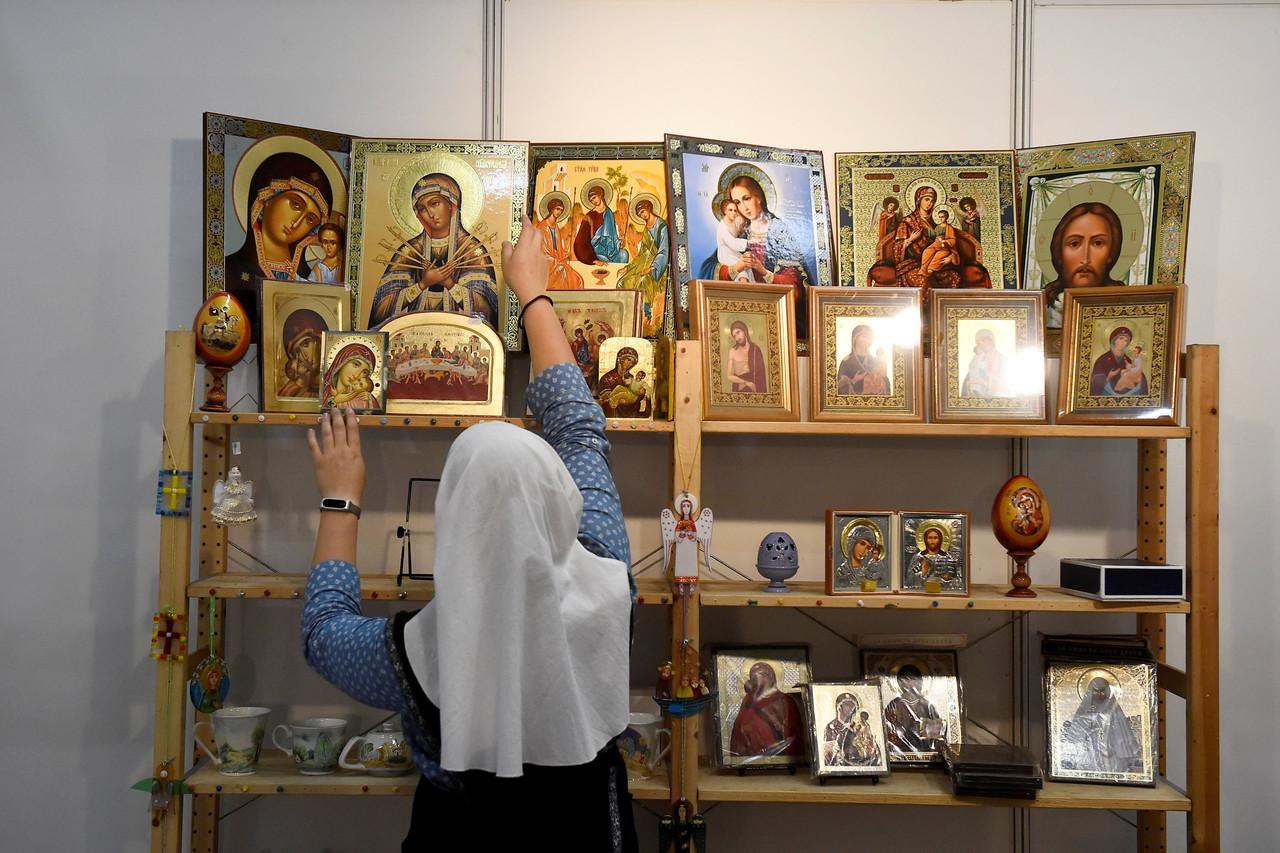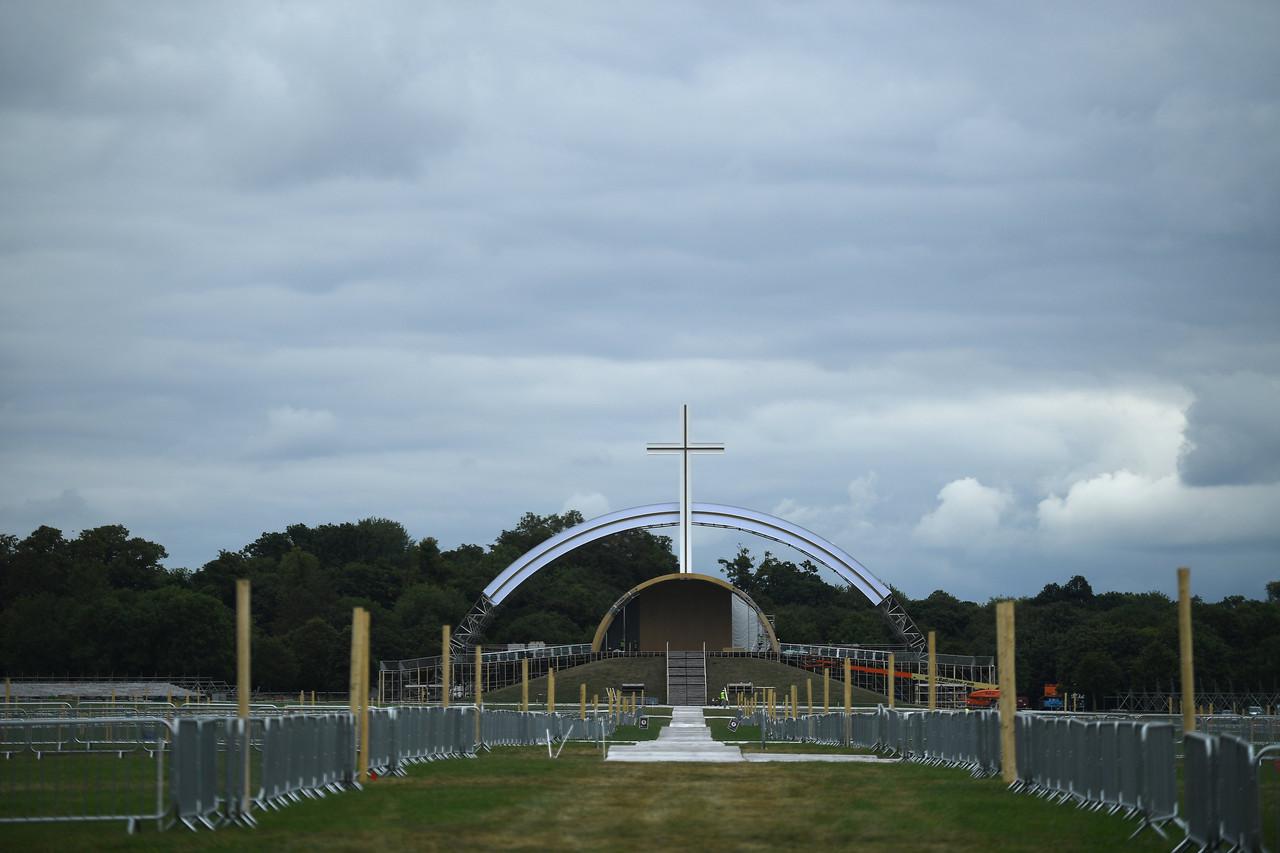|
Sex Abuse to Cast Shadow Over Pope’s Ireland Visit
By Francis X. Rocca
When Pope Francis lands in Ireland on Saturday, he will be visiting a once-devout Catholic society that is increasingly challenging the church’s authority—and where anger is running high over decades of sexual abuse of minors by Catholic priests. The pope’s delicate two-day trip comes as clerical sexual abuse scandals unfold in other countries, including the U.S., and many Catholics are criticizing the pope’s response to the crisis as inadequate. The topic is thus likely to dominate his visit, and his statements and gestures on the subject there will play out to a global audience. This will be the first visit to Ireland by a pope in nearly 40 years. When John Paul II came in 1979, he drew 1.25 million people to an outdoor Mass in Dublin, more than a third of the country’s population at the time. At that time, the prestige of Catholicism in Ireland was virtually unquestioned, and the nation’s public mores were in line with the teachings of the church. Divorce, homosexual acts and abortion were all illegal. By 2016, 78% of the Irish described themselves as Catholic, down from 93% in 1981. But according to Archbishop Diarmuid Martin of Dublin, even those diminished numbers overstate the church’s strength; younger Irish increasingly identify with no religion at all, he said. “The main body of believing and practicing Catholics and the main leadership of the Catholic Church belong to a generation which is different to that of the future. And that’s the big challenge,” Archbishop Martin said in an interview. Ireland’s shift has been dramatically reflected in referendums in which voters approved same-sex marriage in 2015 and the legalization of abortion in 2018 by hefty margins, with considerable percentages of churchgoing Catholics voting in favor of change. “We no longer have this quiescent, passive laity, who interrogate nothing and who are obedient in a deferential and unquestioning way,” said Mary McAleese, a former president of Ireland and a critic of the Catholic hierarchy. The causes for this cultural change include the spread of formal education and an economic boom that shaped a more cosmopolitan society. But a key factor has been the revelation of clerical sexual abuse. Judicial inquiries over the past two decades have uncovered widespread abuse of minors by priests, and physical and sexual abuse in church-run institutions including orphanages and homes for unwed mothers. The abuse scandal “has thrown a huge shadow over the church in Ireland. It has created enormous problems regarding trust particularly in our episcopal leaders,” Ms. McAleese said. “Those shadows will hang over Francis, undoubtedly.” Archbishop Martin acknowledged that the church has lost many people’s trust. “The scandals are there. They’ve done enormous damage, and they’re still doing enormous damage because the wounds of those scandals are there.” The prospect of the papal visit has “opened up people’s anger and distress” over the abuse and the coverups by church officials, said Colm O’Gorman, a sex-abuse victim and the executive director of Amnesty International Ireland, who has organized a protest in Dublin to coincide with the pope’s outdoor Mass on Sunday afternoon. Archbishop Martin said the pope would undoubtedly address the abuse crisis during the visit, adding that he would have to be “extremely sensitive to understand…the anger in these people.” If he fails to show such sensitivity, the archbishop said, the pope could provoke a reaction in Ireland similar to what he experienced in Chile. During his visit to the South American country in January, the pope sparked international outrage when he said that victims accusing a Chilean bishop of covering up sex abuse were guilty of slander. The pope later said he had made grave mistakes in the matter because he had been misled. “The pope just needs to tell the damn truth,” Mr. O’Gorman said. “He needs to admit that the institutional church and the Vatican directed, implemented and oversaw the coverup of these crimes.” On Monday, Mr. O’Gorman also criticized the pope’s letter to the world’s Catholics on sex abuse, telling an Irish radio station that “Pope Francis hasn’t yet acknowledged and owned the responsibility of the Vatican.” The pope plans to meet with some abuse victims in Ireland, as he has done in the U.S. and Chile, and as his predecessor Pope Benedict XVI did regularly on foreign trips, the Vatican spokesman said. As on those occasions, no details will be provided in advance, and it will be up to the victims themselves to divulge any information about the meetings in the aftermath, the spokesman said. He declined to give a response to Mr. O’Gorman’s comments. Marie Collins, an Irish sex-abuse victim and former member of Pope Francis’ advisory panel on child protection, who resigned last year in protest at Vatican inaction, said it is important that he meet with victims who are “disillusioned and angry with the church.” “People want to see him meeting survivors who have something to say,” Ms. Collins said. “People who have been challenging the church, rather than loyal Catholic survivors.” Contact: francis.rocca@wsj.com
|
.
Any original material on these pages is copyright © BishopAccountability.org 2004. Reproduce freely with attribution.

